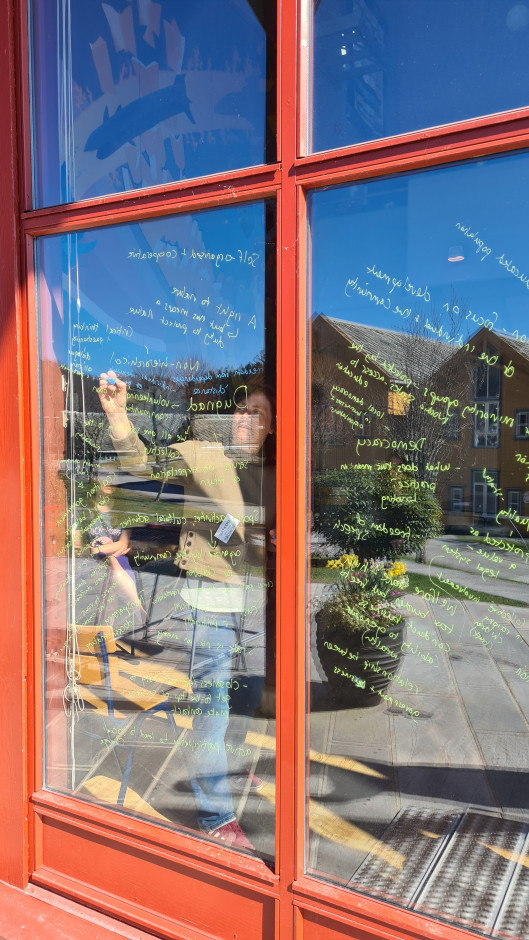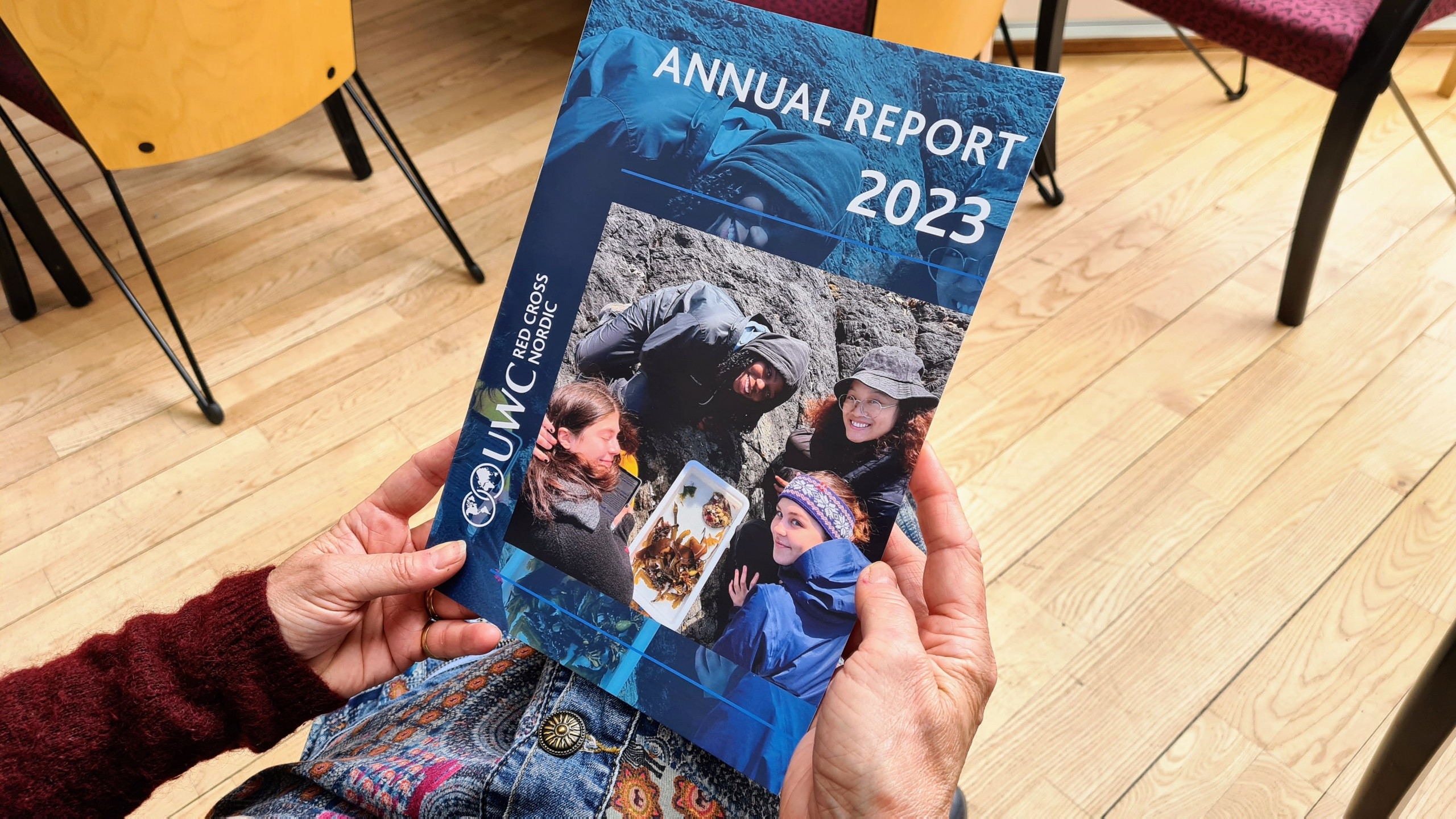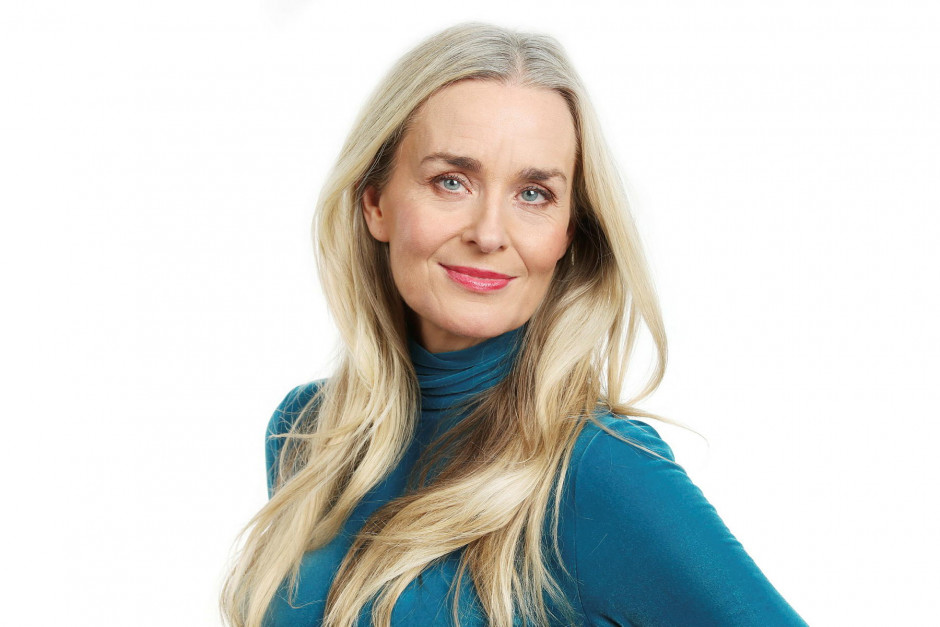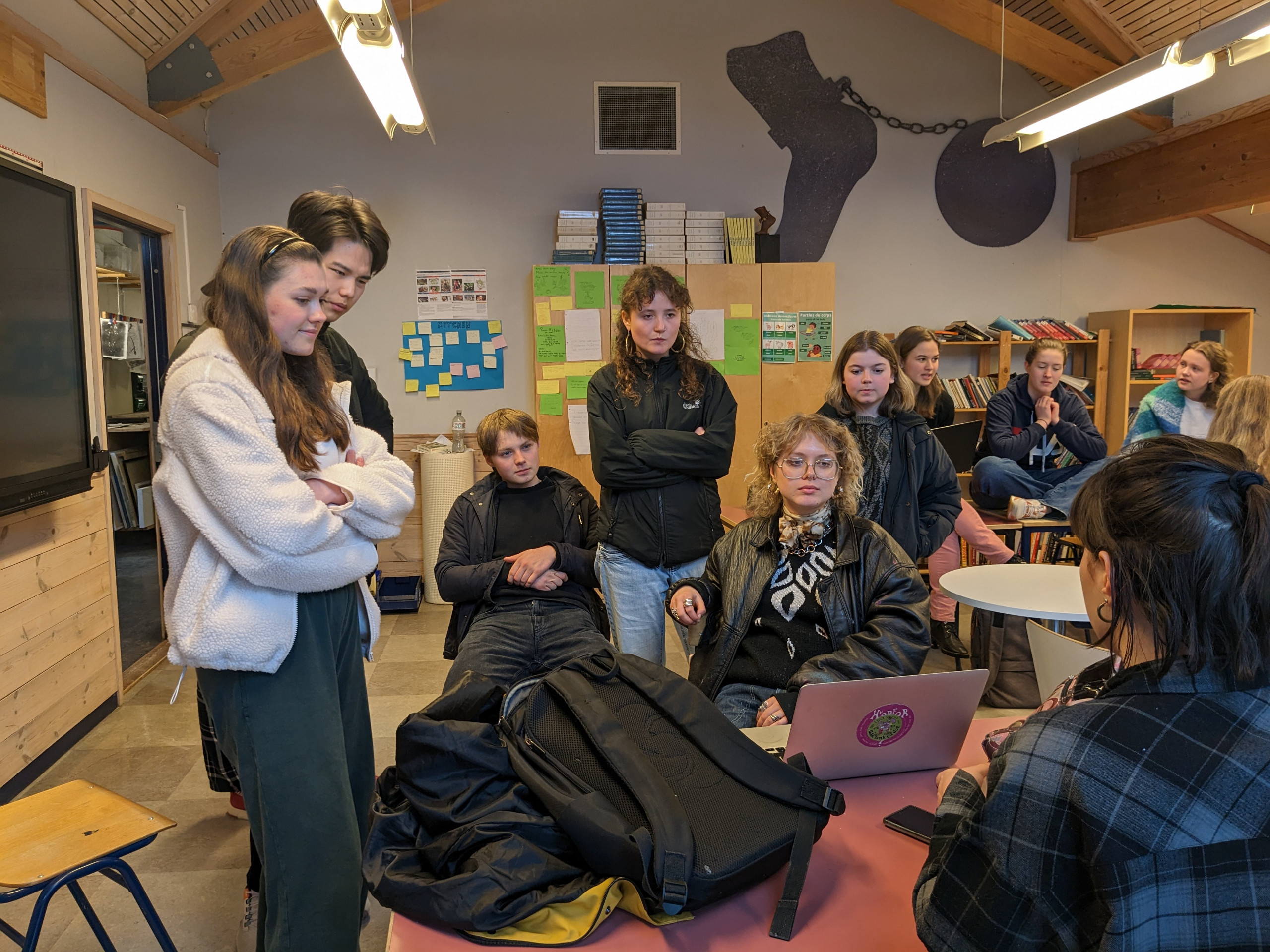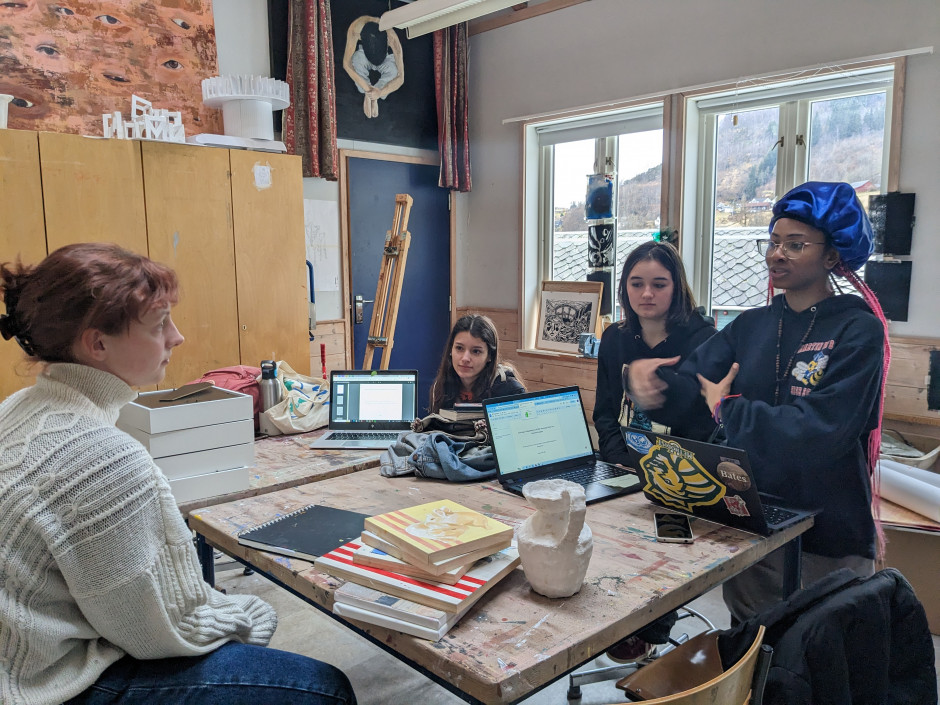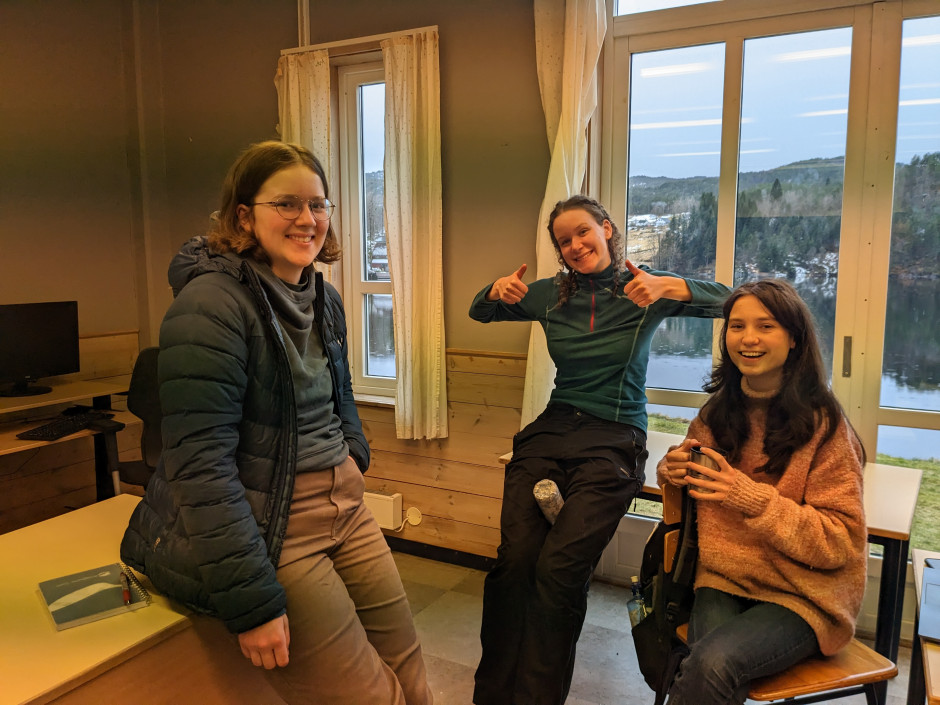Navigating Neutrality: Red Cross and Red Crescent Day at RCN
May 8th marked World Red Cross and Red Crescent Day, a day dedicated to recognizing the essential principles of voluntary service and neutrality. The Red Cross movement and UWC have formed a unique partnership in a small Norwegian fjord in 1995. While these organizations share core values and principles, their combination also presents its own set of challenges.
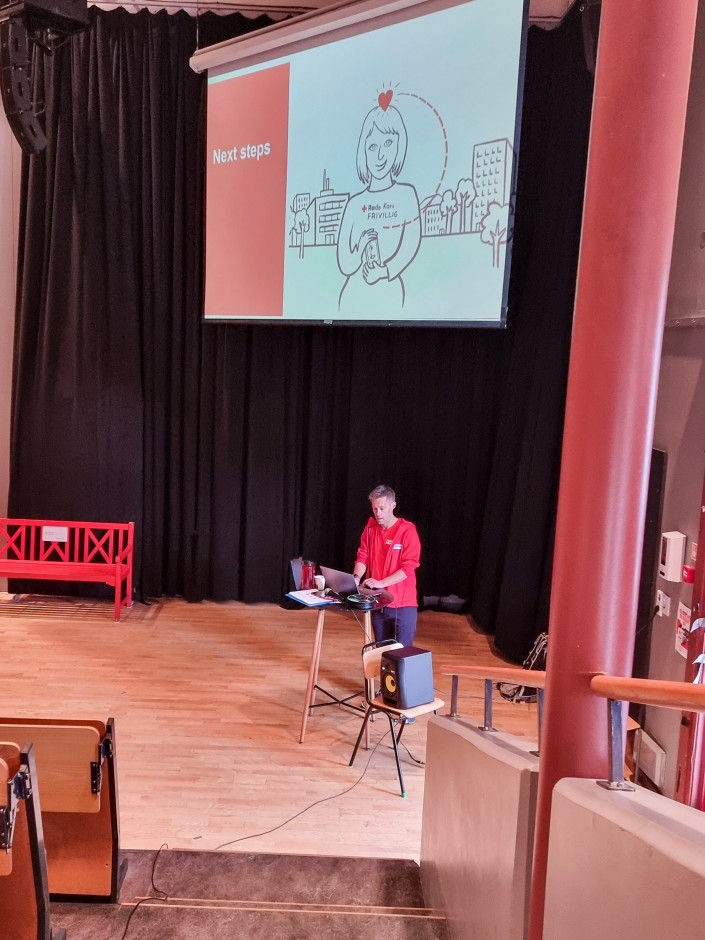
The event at UWC Red Cross focused on shedding light on the Red Crescent’s initiatives in Palestine, prompting deep contemplation about the complexities of maintaining neutrality. The students delved into the question of how the principle of neutrality upheld by the Red Cross Movement aligns with the UWC mission of fostering peace and social justice. This exploration aimed to understand the circumstances under which neutrality becomes valid and necessary.
To initiate the plenary session, Rektor Pelham Lindfield Roberts and History teacher Mariangela Lanza shared their insights on the Israeli-Palestinian conflict from a neutral standpoint. Additionally, Palestinian students provided glimpses into their lives, highlighting the vast differences experienced by Palestinians depending on their location, be it East Jerusalem, Gaza, the West Bank, or distant lands far from their ancestral homes. While our College currently does not have Israeli students, the hope is to welcome more in the future, as their perspectives would contribute to a deeper understanding of the conflicts at hand.
In the pursuit of understanding complex dilemmas, RCN relies on the guidance of dedicated staff and students. Completing the Red Cross Start Course for volunteers, led by instructor Anders Ekeland, equips students with the necessary tools to navigate these complexities with greater knowledge and empathy.
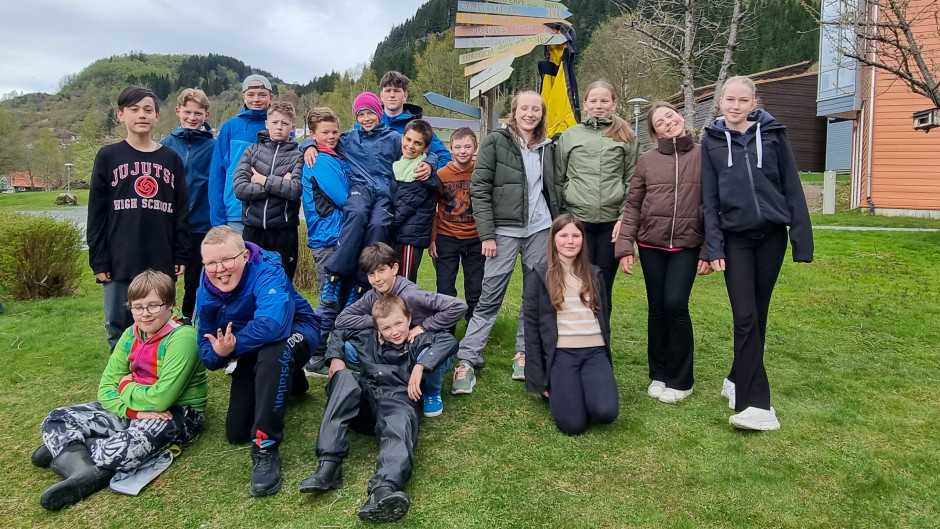
In addition to the course, RCN welcomed visitors from a local primary school for Search and Rescue activities. The resounding enthusiasm from the Flekke kids, their teachers, RCN students, and First Aid instructor David Robertson led to a unanimous sentiment: “We want to do this again!” The event also extended an invitation to refugees settled in Dale, providing them with a campus tour and an opportunity to share their stories with students who spoke their mother tongue. These connections forged during the event are expected to endure through the Language Café, organized by Frivilligsentralen, and the introduction program designed for refugees settling in Norway. The involvement of Frivilligsentralen, a volunteer center, further enriched the exchange of experiences related to volunteering in Fjaler.
Workshops addressing Water Scarcity and Geopolitical Conflicts, facilitated by teachers, stimulated thoughtful discussions among participants. Simultaneously, students organized workshops on cooking, baking, and arts and crafts, all inspired by the Middle East, UWC, and the Red Cross and Red Crescent.
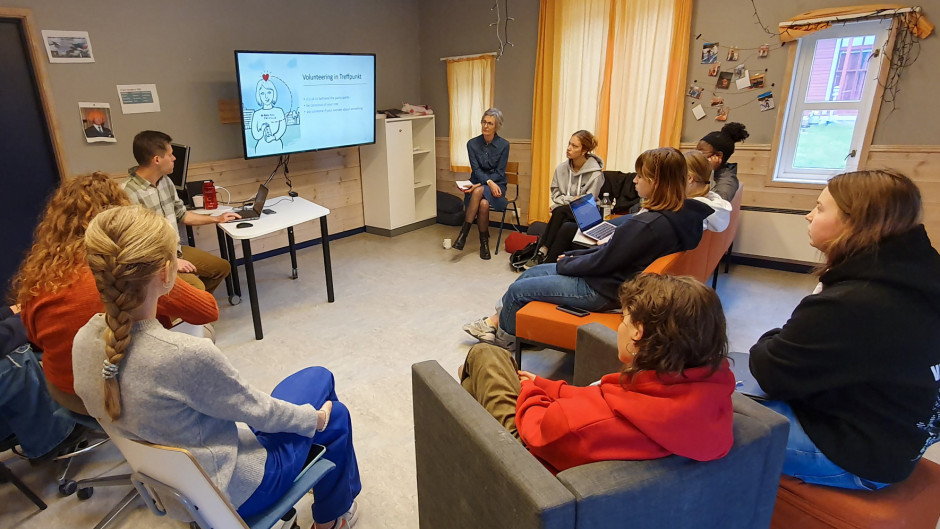
Throughout these engagements, participants familiarized themselves with the seven fundamental principles of the Red Cross and Red Crescent Movement: Humanity, Impartiality, Neutrality, Independence, Voluntary Service, Unity, and Universality. This knowledge was reinforced by a group of students led by Lesley Wilson from Fjaler Red Cross, who completed the Red Cross Treffpunkt Course. Their objective is to establish meeting places and organize activities that promote healthy lifestyles and combat youth loneliness—a venture that holds great promise.
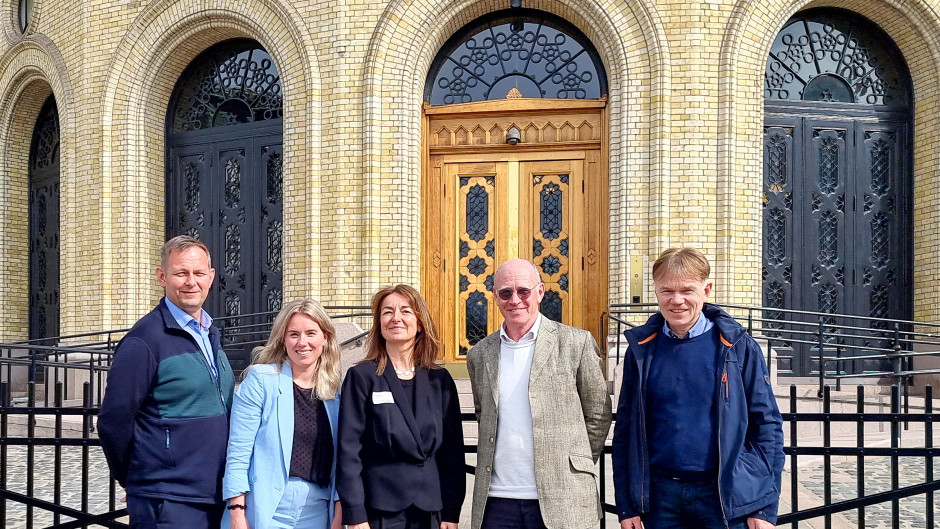 The impact of these initiatives and events is best understood by experiencing UWC Red Cross Nordic firsthand. Politicians, including Kathrine Kleveland from Senterpartiet Noreg, Catarina Deremar from the Centre Party of Sweden, and Kjetil Felde, Mayor of Fjaler, recognized the significance of RCN’s work and paid a visit on Red Cross and Red Crescent Day. In return, the Leadership of the College had the opportunity to meet parliamentarians from Vestland at the Parliament in Oslo the following day.
The impact of these initiatives and events is best understood by experiencing UWC Red Cross Nordic firsthand. Politicians, including Kathrine Kleveland from Senterpartiet Noreg, Catarina Deremar from the Centre Party of Sweden, and Kjetil Felde, Mayor of Fjaler, recognized the significance of RCN’s work and paid a visit on Red Cross and Red Crescent Day. In return, the Leadership of the College had the opportunity to meet parliamentarians from Vestland at the Parliament in Oslo the following day.
Latest News
Visit of the Chair of the UWC International Board
The UWC RCN community was privileged to host Dr Musimbi Kanyoro, the Chair of the UWC International Board, who took time out of her visit to Denmark for a brief visit to RCN. [...]
H.M Queen Sonja visit UWC Red Cross Nordic
We're thrilled to announce that on UWC Day, 21st September, the annual global celebration of the UWC mission and values, we will be joined by H.M Queen Sonja. Queen Sonja has been a [...]
Reunion 2023: A Celebration of Shared Journeys
Last week, we had the pleasure of hosting our alumni crew from the classes of 2003, 2004, 2012, and 2013. Can you believe it's been 10 and 20 years? Laughs, tears, and joy [...]

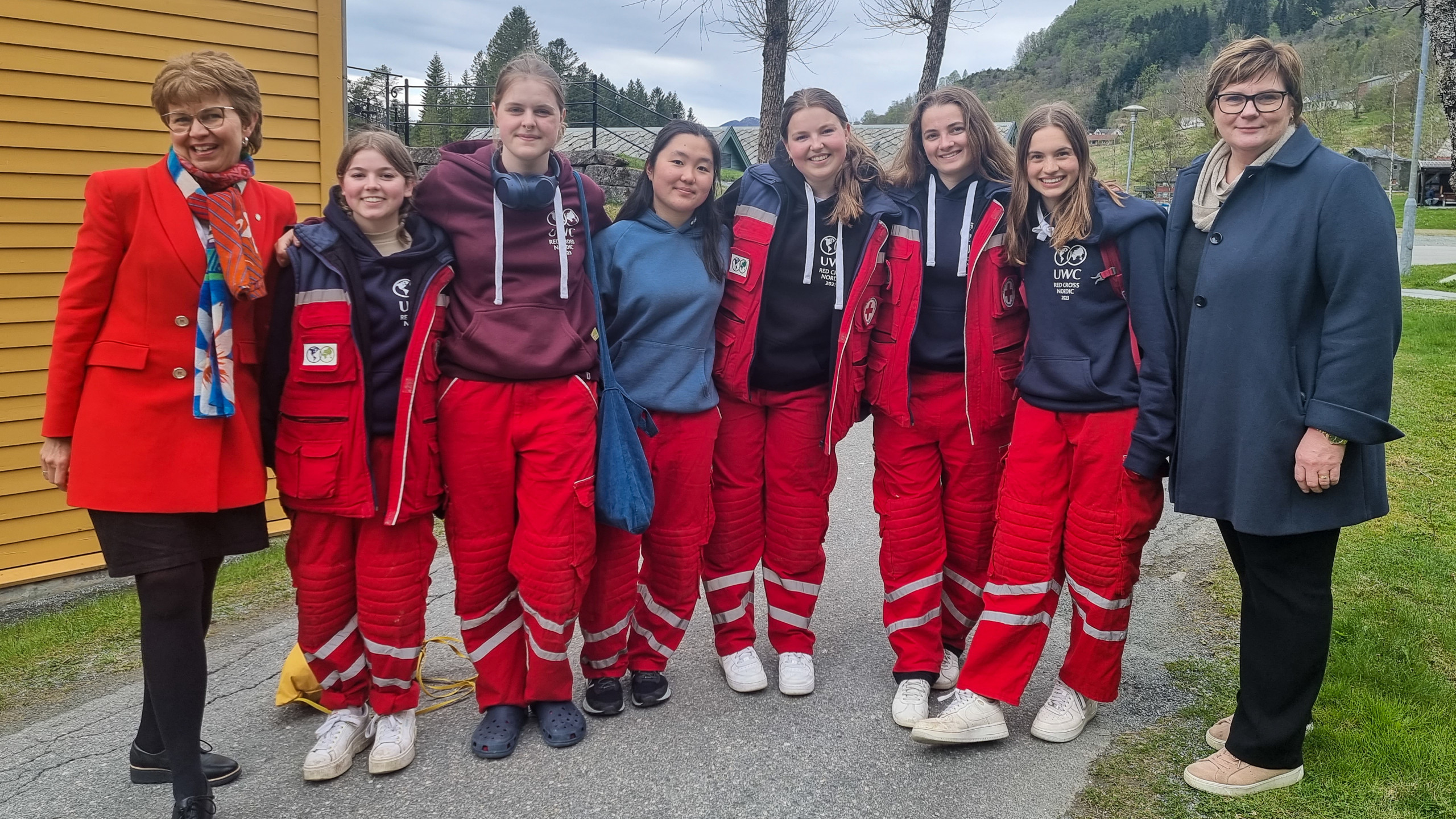
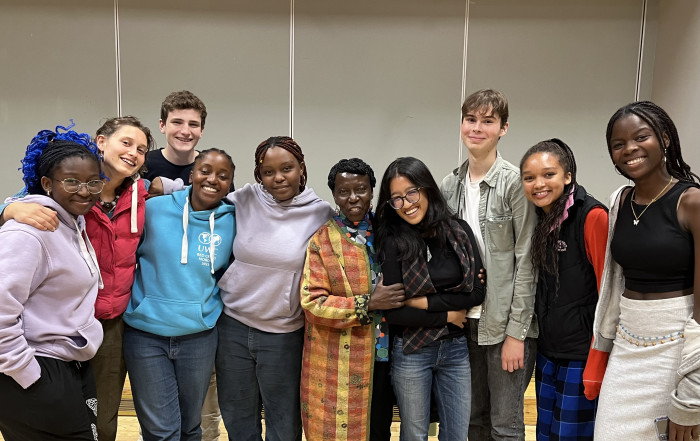
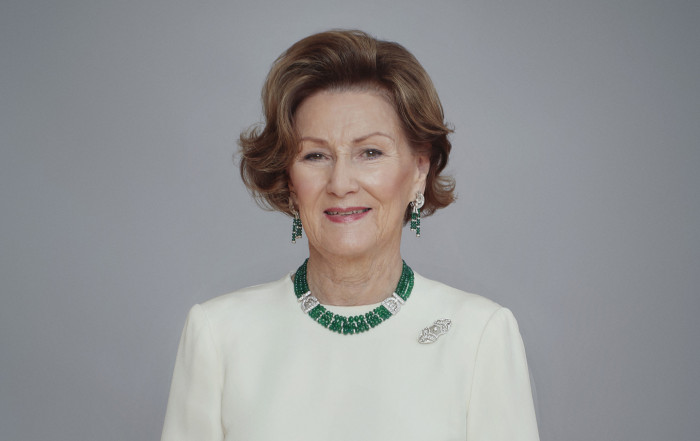
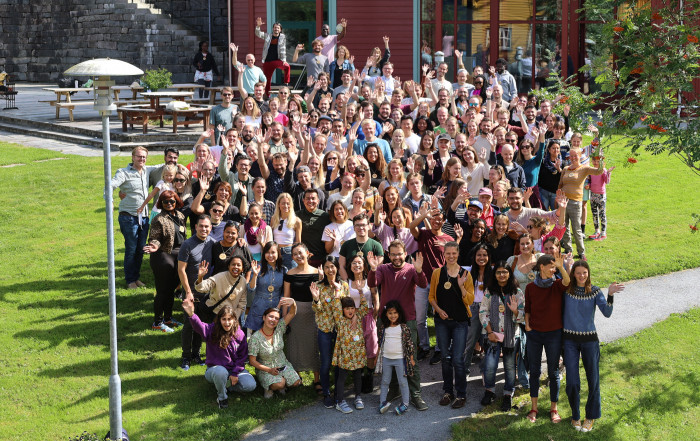
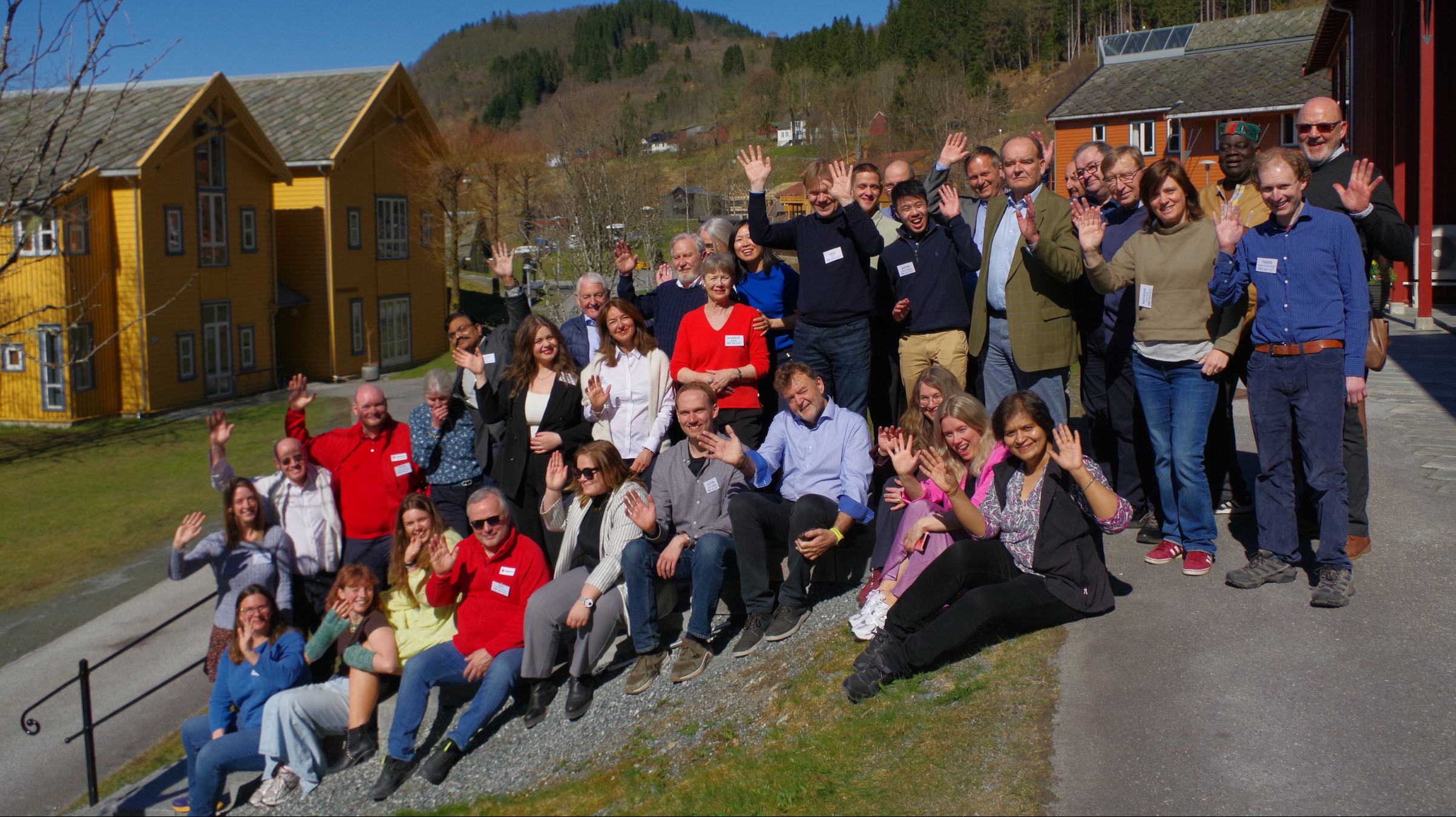
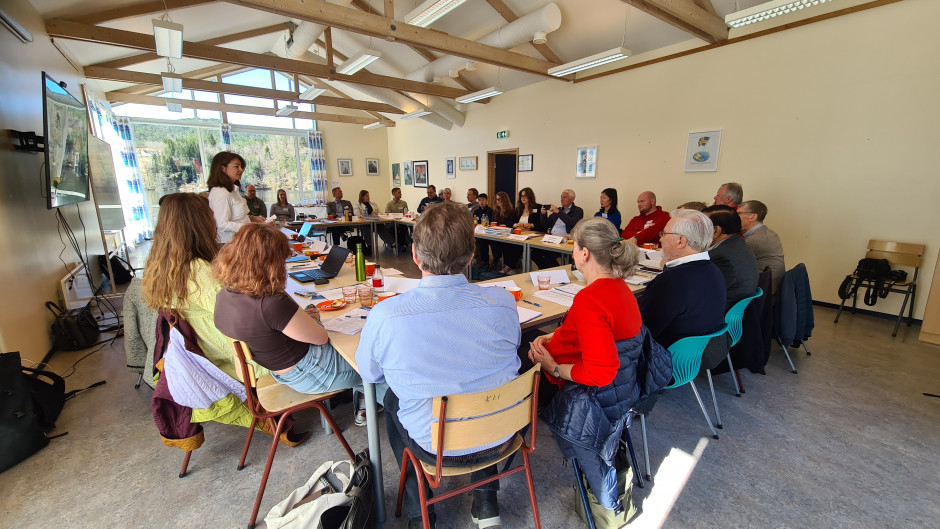 “It is always a pleasure to visit the beautiful campus of UWC Red Cross Nordic, especially in such sunny weather! It was invigorating to have the opportunity to connect with so many students and staff members throughout the weekend. I am grateful for the enthusiasm and dedication of the Council when addressing the important topics on our agenda. The program that was offered for us was both informative and thought-provoking, and I am excited to see the progress that we can make as a school community in the future. The council met Rektor Pelham Lindfield Roberts for the first time and received his report on the state of the college.
“It is always a pleasure to visit the beautiful campus of UWC Red Cross Nordic, especially in such sunny weather! It was invigorating to have the opportunity to connect with so many students and staff members throughout the weekend. I am grateful for the enthusiasm and dedication of the Council when addressing the important topics on our agenda. The program that was offered for us was both informative and thought-provoking, and I am excited to see the progress that we can make as a school community in the future. The council met Rektor Pelham Lindfield Roberts for the first time and received his report on the state of the college.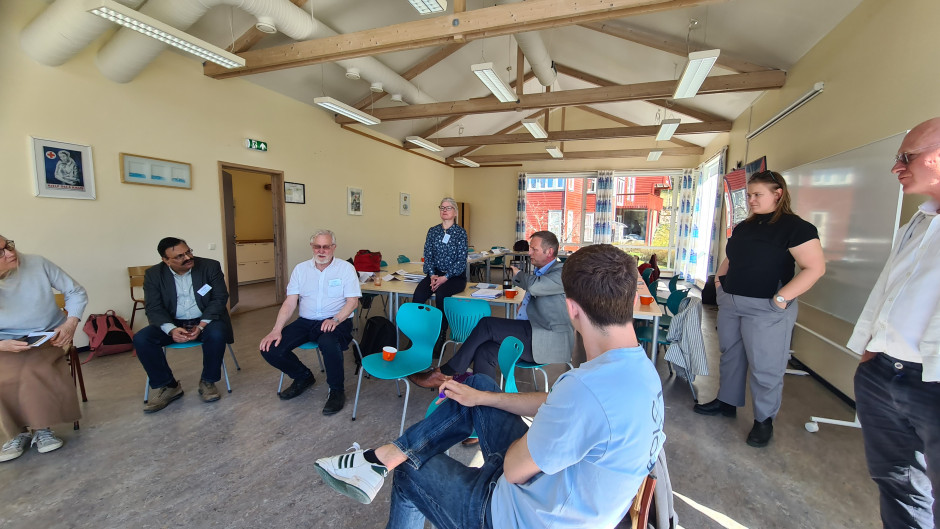 We discussed the new structure of the Council and Board, and we welcomed the new members to both the
We discussed the new structure of the Council and Board, and we welcomed the new members to both the 